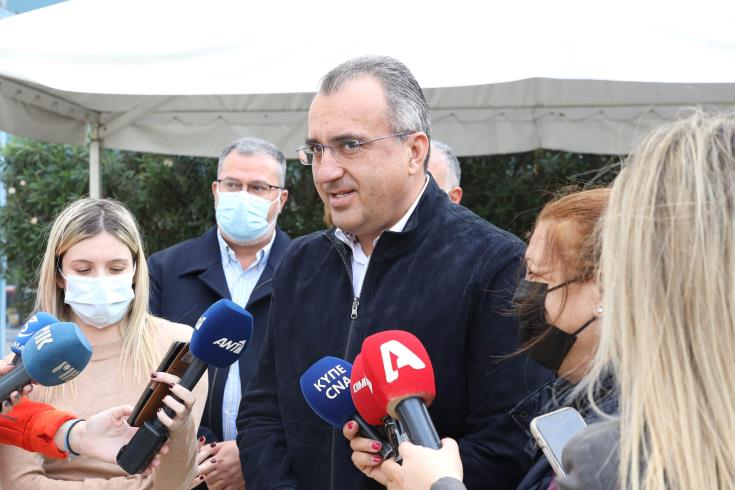Health Minister Michalis Hadjipantelas will hold separate meetings with the president and the epidemiological team on Monday as authorities consider additional measures to curb the spike in daily coronavirus cases.
On the first day of the mandatory implementation of CovScan, the minister is expected to update President Nicos Anastasiades on the epidemiological situation of the country, but also the experts’ suggestions on how to contain the spread of the virus.
At 3pm, Hajipantelas will meet the health ministry’s advisors on pandemic issues, to discuss the possible implementation of additional measures, including compulsory use of masks at primary schools, the introduction of self-tests, restricting the number of people at public gatherings, remote working, as well as the possibility of targeted tests on vaccinated and unvaccinated people.
Also among the measures being floated are the cancellation of some Christmas events, including school events, and banning unvaccinated people from visiting nightclubs, stadiums and theatres, the Cyprus News Agency reported citing sources.
Currently, unvaccinated people could visit the above places with a 72-hour negative test.
The two meetings are taking place in view of the cabinet meeting on Wednesday where any decisions will be taken.
In their statements on Saturday, both the health minister and the president implied that measures might target the unvaccinated to avoid horizontal restrictions.
“To avoid a blanket lockdown, some people must be excluded, no matter how much we respect their views,” Anastasiades said.
Local media quoted Hadjipantelas as saying that some advisors are pushing for the booster vaccine dose to become a requirement for a valid SafePass.
Meanwhile, electronic scanning of EUDCC certificates using the CovScan application became mandatory for businesses requiring a SafePass as of Monday, with the exception of some population groups.
These include people aged 65 and over, those aged 18 and under, Turkish Cypriots who were vaccinated in areas not controlled by the government, tourists who were vaccinated in countries outside the EU, the EEA and Switzerland and legal residents of Cyprus who were vaccinated in countries outside the EU, the EEA and Switzerland.
Stricter measures, including lockdowns, have been introduced around the world to prevent the spread of coronavirus as cases are on the rise despite protests against tougher restrictions.
Austria became the first country to make anti-coronavirus vaccinations mandatory, while it entered its fifth full lockdown on Monday. Netherlands also imposed a three-week partial lockdown as of Saturday.
France and Greece already announced they will be requiring booster shots for people over 65 and 60 respectively, to have valid pass.







Click here to change your cookie preferences